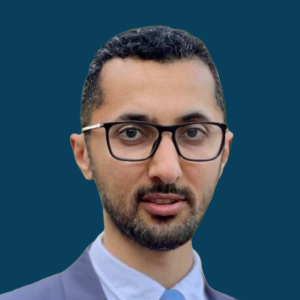
Abdullah Alaoudh
Abdullah Alaoudh is the Countering Authoritarianism senior director at MEDC. Previously, he served as the Saudi director at the Freedom Initiative. He was a visiting adjunct professor at the Elliott School at George Washington University and served for two years as a senior fellow at the Alwaleed Center for Muslim-Christian Understanding at the Edmund A. Walsh School of Foreign Service at Georgetown University. He also was a postdoctoral fellow at Yale Law School at the Center for Islamic Law and Civilization between 2017-2018.
Before joining the Freedom Initiative, Alaoudh served for three years as the director for the Gulf at Democracy for the Arab World Now (DAWN), the nonprofit organization founded by Jamal Khashoggi.
Alaoudh is the secretary general and co-founder of the National Assembly Party (NAAS), Saudi Arabia’s first openly declared political party, which calls for an elected parliament and constitutional safeguards in Saudi Arabia. He is also a signatory and one of the drafters of the Saudi People’s Vision for Reform, a blueprint for democracy and human rights in Saudi Arabia.
Alaoudh has published extensively on Saudi Arabia and the Persian Gulf and appears regularly in the media as a commentator. His work has been featured in the New York Times, Washington Post, the Guardian, and Foreign Policy.
Alaoudh obtained his S.J.D. and L.L.M. from the University of Pittsburgh in comparative international law. While at the University of Pittsburgh, he completed his dissertation on religious institutions and the influence of the ulama (body of Muslim scholars) in post-revolutionary Arab countries. He received his B.A. in Islamic Law from Qassim University in Saudi Arabia.
Abstract
Abdullah Alaoudh detailed the authoritarian regression of Kuwait, once considered a semi-democratic outlier in the Gulf. He described how the Emir has dissolved parliament, revoked citizenships, and curtailed dissent, reversing previous gains in political participation.
Alaoudh argued that Kuwait’s democratic reversal is symptomatic of a broader trend in the region, where rulers take advantage of global apathy and lack of Western pressure to tighten their grip on power. He criticized the absence of a firm U.S. response, contending that this silence has emboldened repressive measures and signaled to other regimes that democratic backsliding will go unchallenged.

